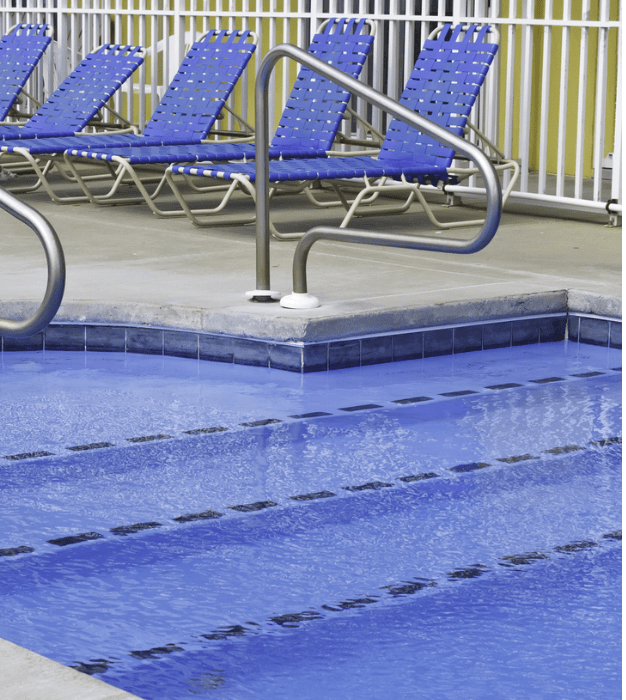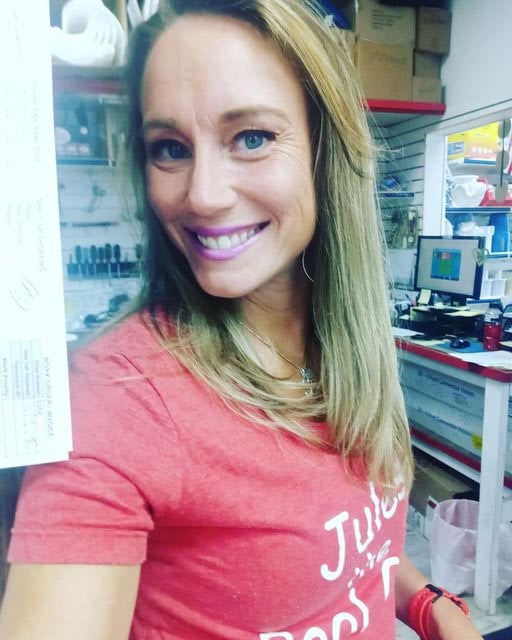There is a lot to do to maintain a commercial body of water. We need to follow local guidelines. We want our water clean and clear and inviting. Most importantly, we want our water to be safe. Here are some frequently asked questions about owning and operating a commercial swimming pool and meeting the Health Department Pool Regulations.

How Often Should I Test the Water to Meet Health Department Pool Regulations?
Your commercial pool water needs to be tested and the results logged, regularly. What “regularly” means in your region could vary. Some health departments require you to test every hour. Some are laxer and just require a daily test. Whatever the rules are, test as often as possible so we can correct any fields that are off as soon as possible. This helps avoid danger to our bathers and potential damage to our pool’s surface, plumbing, and equipment.
If you are looking for an easy way to test, I recommend the Pool Shark H2O App paired with the optional LaMotte Spin Touch. The LaMotte Spin Touch is portable. You take a very small amount of water from the pool and fill a disc. Then you insert it into the Spin Touch. You have the results in just 60 seconds! If you are also using the Pool Shark H2O App, the results are immediately sent to your devices. You get an accurate reading, dosing instructions, and a digital pool chemical log. Not ready to take the leap for the spin touch? That’s ok. You can manually test your water and input your findings into the app.
Proper water chemistry is the keystone to a healthy pool. Without it, the water can look yucky, pose a drowning risk, feel uncomfortable to bathers, and could be unsafe. Proper chemistry and proper circulation are uber important!
A lot of maintenance workers are off on the weekends. But guess what? The water STILL has to be tested and logged. Find and train a reliable staff member to do the testing on the weekends too. The health department works on weekends too so we have to be compliant. If you don’t have someone there to test and log, legally, you would need to close the pool. Now that is not going to make our clients happy, is it? This could result in refund requests and other losses of revenue. So test, test, test!
What About Health Department Pool Regulations and Pool Test Logs?
People often ask how long they are required to keep their pool water test result records. This varies by region, but the average is 7 years. In reality, you want to keep them until the statute of limitations is up and you are no longer liable. If you are still using old-fashioned paper log books this can be a headache. You have to make sure someone is filling it out, know where it is at all times, keep it from getting wet, and store them. Can you imagine trying to find a place to store boxes and boxes of paper logs? With the newer technology of digital logs, like the Pool Shark H2O, all your records are accessible from whatever device(s) you have. Save space and keep the health department off your back? Sign me up!
What to Do in Case of an Accidental Fecal Release (AFR)?
I often get panicky calls from customers who have experienced this joyful accident. The saying in the industry regarding chlorine levels is, “If its poo, it's a 2,0. If it's runny, it's a 20.” This is of course referring to parts per million of free chlorine. Depending on if it is solid waste or runny waste will depend on the process. Did you know that the Pool Shark H2O has step-by-step instructions on what to do? No need to hunt down your old CPO book!
What Safety Equipment Do I Need to Meet Health Department Pool Regulations?
You will need an ADA chairlift for each body of water. I recommend keeping an extra battery for each onsite so you don’t have to close the pool. You will need a non-telescopic pole. You will need a shepherd's hook. You will need a life ring and a long enough pool throw rope to reach the other end of the pool. You need handrails and ladders to be in good condition. You need a VGB-compliant main drain that is less than five years old, or has a validation date that hasn’t expired. This can be tough to remember, but luckily, the Pool Shark H2O App has a built-in reminder. How cool is that? You need depth markers. You need emergency signage. You need diarrhea signage. You need a pool gate that can follow local health department regulations. You need a fence that does the same. These rules may seem annoying, but they help save lives and are super important.
What About Proper Pool Chemical Storage?
We need to follow the guidelines for proper chemical storage, disposal, dispensing, and separation. Have MSDS (material safety data sheet) sheets available for every chemical you use in your pool. They are available for free online. Always make sure you have the proper PPE (personal protective equipment) available for anyone who handles the pool chemicals.
I am sure there may be other questions you may have about owning and operating your commercial pool. Feel free to reach out and contact us if you do. See you poolside!



